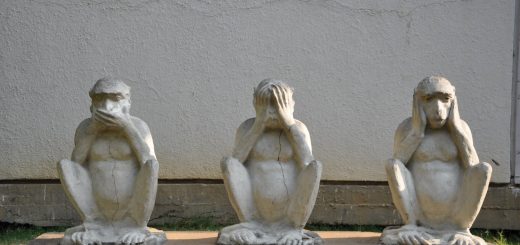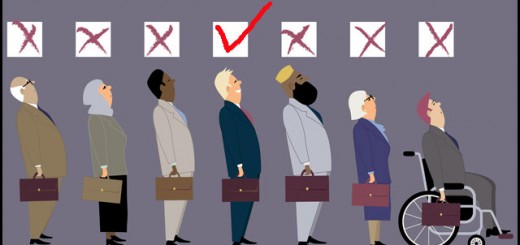Hatred Under the Guise of Rationality: Disability, Eugenics, and Ward v Quebec

People with disabilities—as well as other marginalized peoples—are well-aware that ideas presented under the guise of neutrality, rationality, and scientific thought are not necessarily any less likely to propagate hate due to their manner of expression, contrary to the analysis recently provided by the Supreme Court of Canada (“SCC”) in Ward v Quebec (Commission des droits de la personne et des droits de la jeunesse), 2021 SCC 43 [Ward].
As one of two students who used a wheelchair in my second-year bioethics class, I remember learning about Julian Savulescu’s idea of “procreative beneficence”—that when having a child, people should select for the embryos most likely to have “the best life” (“Procreative Beneficence: Why We Should Select the Best Children”). In practice, this meant selecting out embryos that may be more likely to develop a disability, along with other traits that could negatively impact the well-being of the person. This suggested that were my future illness easily genetically detectable, my parents ought to have selected a different embryo—an embryo unencumbered by chronic illness. As I headed to my tutorial after class, in which students were expected to neutrally debate the merits of Savulescu’s ideas, I could not stop myself from crying, and, embarrassingly, had to ask to be excused from the tutorial, which my sympathetic TA immediately granted.
In her article “Unspeakable Conversations” (reproduced in Alice Wong’s anthology entitled Disability Visibility), Harriet McBryde Johnson recalls a similar experience. As a disabled lawyer involved in disability rights advocacy, she had been invited to debate Peter Singer, a prominent philosopher and bioethicist, about the merits of selected infanticide of disabled babies on the basis of preference utilitarianism – his contention being that parents should be entitled to kill their children born with disabilities to replace them with “nondisabled babies who have a greater chance at happiness” (McBryde, 9). This, she explains, entails a “civil discussion of whether I ought to exist” (McBryde, 9). As McBryde reflects on her personal conversations with Singer after the debate, she writes: “Singer is easy to talk to, and good company. Too bad he sees lives like mine as avoidable mistakes” (McBryde, 20).
Eugenicist ideas like these are presented as rational and scientific topics of debate about the progression of humanity. They are not presented in an overly emotional manner, and proponents would deny that they are based on any form of hatred or vilification of people with disabilities. They are arguing about what is best for humankind – merely advocating that the world would be a better, happier place if people with disabilities were not born, did not exist. This, of course, is not a harmless idea. Every year, deeply ingrained eugenicist beliefs lead caregivers and family members of people with disabilities to conclude that the lives of those they care for are not worth living (for example, see the memorial entries associated with the Disability Day of Mourning, a day of mourning for people with disabilities killed by family members worldwide). This justification featured prominently in the 2001 Supreme Court of Canada decision R v Latimer, 2001 SCC 1, in which a parent killed his disabled daughter after “form[ing] the view that his daughter’s life was not worth living” due to her severe disability” (para 13). Taken to its extreme, this ideology led to Nazi Germany’s widespread sterilization and euthanasia of people with disabilities—labelled as “life unworthy of life” (United States Holocaust Memorial Museum).
This context—the real, present threat of violence against people with disabilities rooted in ongoing eugenicist beliefs masked as neutral scientific debate—is why I take issue with the majority decision in Ward (previously discussed by contributor Jennifer Laws). Ward emphasizes the “mode of expression and the effect of the mode of expression” when assessing how to balance the right to free expression and the right to the safeguard of dignity under Quebec’s Charter of human rights and freedoms, CQLR, c. C‑12 [Quebec Charter] (Ward, para 85). Briefly, Ward addresses a human rights complaint brought against Mr. Ward, a stand-up comedian, for jokes he made about Mr. Gabriel, who at the time was a disabled child with a public following due to his singing performances. Mr. Ward’s jokes included mockery of Mr. Gabriel’s appearance (since his disability, Treacher Collins syndrome, caused “deformities to the ears, head, and palate”) and his singing ability (Ward, paras 120, 122). One particular portion of Mr. Ward’s routine, translated into English below, proceeded as follows:
When little Jérémy came, everyone complained except me, I was the only one who defended him. Y’know when he came, he sang for the Pope, people said, “He’s really bad, he’s off‑key, he sings badly”. I defended him, I said, “He’s dying, let him live out his dream, he’s living out a dream. His dream was to sing off‑key in front of the Pope”.Then after he sang for the Canadiens, people complained again, “He sings badly. He’s off‑key, he’s no good”. Christ, he’s living out a dream, let him live out his dream.
[He] sang for Céline, again with the “He really sucks, he’s off‑key, he sings badly”. Christ, he’s dying, let him live out his dream. I defended him . . . Except now . . . five years later . . . he’s still not dead!Idiot that I am, I defended him like an idiot, and he doesn’t die.
I saw him with his mother at a Club Piscine. I tried to drown him . . . couldn’t do it, couldn’t do it, he’s unkillable.
I went online to see what his illness was. You know what’s wrong with him? He’s ugly! (Ward, para 123).
The majority decision at the Supreme Court of Canada found that Mr. Gabriel had not experienced discrimination under the Quebec Charter. It set out a three-part test—that to prove discrimination, a complainant must demonstrate that there was a distinction drawn; that the distinction was on the basis of a prohibited ground under the Quebec Charter; and that the distinction nullified or impaired the equal recognition of another right under the Quebec Charter, though bearing in mind the need to balance other protected rights under the Quebec Charter in doing so (Ward, para 44). In this context, the majority’s analysis led to a conflict between Mr. Gabriel’s right to the safeguard of his dignity and Mr. Ward’s right to free expression. In order to balance these two competing rights, the Court set out two considerations:
- Whether a reasonable person, aware of context and circumstances, would view the expression targeting the individual or group as inciting others to vilify or detest their humanity based on a prohibited ground; and
- Whether a reasonable person would view the expression in context as likely to lead to discriminatory treatment of the person targeted.
It was in assessing the latter that the Court found that the mode of expression and the effect of the mode of expression are determinative. The majority explains:
“Expression that stirs up extreme and intrinsically dangerous emotions like hatred in an audience clearly does not have the same impact as expression that is calm and rational. This does not mean, of course, that speech that purports to be scientific or rational is incapable of arousing the contempt of the majority for the humanity of vulnerable groups. But, in general, expression that appeals to an audience’s reason or to emotions free of any real motivating force will be unlikely to lead to discriminatory treatment of the targeted individual or group” (Ward, para 85, emphasis added).
Although Ward itself was about humour, this discussion of scientific and rational speech is concerning obiter for future disability cases. The majority’s reasoning certainly contemplates the possibility that advocating for eugenics at an extreme level, such as genocide, can fall within the scope of discrimination not counterbalanced by the need to protect freedom of expression. However, by setting up a hierarchy of modes of expression, and by emphasizing that purportedly rational and calm speech will be less likely to meet the threshold, the decision reinforces the idea that speech that is scientific and rational will be less likely to trigger hatred against a particular group. This idea is contradicted by the history and reality of the eugenics movement, and its influence in the devaluation of the lives of people with disabilities.
In deciding whether Mr. Ward’s speech itself constituted discrimination, the majority found that Mr. Ward’s comments did not meet the requisite threshold to constitute discrimination. Mr. Gabriel’s dignity was not sufficiently impaired, because the comments in question would not likely cause others to vilify or detest him on the basis of his disability, and were not likely lead to discriminatory treatment. To the majority, Mr. Ward’s expression may have been repugnant, but it was not discriminatory.
The dissenting justices took a different view—one that more appropriately foregrounded the foreseeable harm done to a disabled child. In addition to framing the test slightly differently, they also found that Mr. Gabriel’s right to free and equal recognition of his right to the safeguarding of his dignity under section 4 of the Quebec Charter was impaired. They pointed to three particular features of Mr. Ward’s expression that would lead a reasonable person in Mr. Gabriel’s circumstances to conclude that their right to dignity had been impaired: the wide distribution of Mr. Ward’s routines ensuring that Mr. Gabriel could not escape their impacts; the fact that they were released while Mr. Gabriel was a child; and the invocation of archaic and harmful stereotypes about the disposability and burdensome nature of children with disabilities. These factors outweighed Mr. Ward’s right to freedom of expression, particularly given the limited public interest in Mr. Ward’s speech and the peripheral connection to the core values underlying freedom of expression.
The dissenting judgment represents a more accurate and fulsome understanding of the impact words have, particularly to already marginalized peoples. As they explain, Mr. Ward’s joke about trying to kill Mr. Gabriel cannot be understood in a vacuum—it must be assessed in the broader context, which includes the reality that disabled people, and especially disabled children, are routinely treated as disposable. When you have prominent philosophers and bioethicists publicly endorsing the killing of disabled infants to make room for non-disabled children, and caregivers regularly killing disabled children and adults in their care, a joke inviting audiences to laugh about killing a disabled child cannot be understood as harmless speech that is unlikely to vilify or incite detestation.
Whether masked as humour or rationality, the idea that disabled people are better off dead, or that the world is better without them, is dangerous. It is worrying that the Supreme Court of Canada majority endorsed the view that hatred is more likely found in overt displays of emotion than in scientific and rational speech. Hatred exists—and arguably flourishes—under the guise of rationality. To suggest that calm, rational, scientific speech is less likely to incite discrimination is a worrying precedent and a significant misunderstanding of how hatred and discriminate operate.







Join the conversation